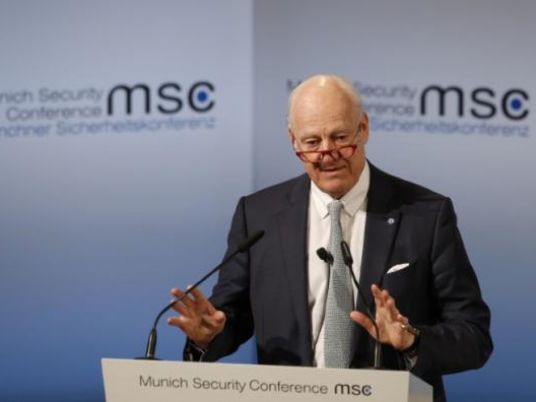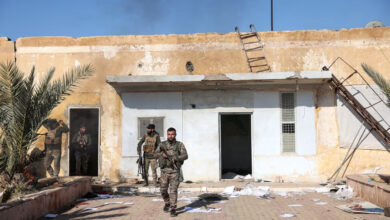
UN mediator Staffan de Mistura said on Wednesday he did not expect an immediate breakthrough when Syria peace talks restart on Thursday but wanted productive talks that relaunch the process towards a political solution to end the six-year war.
They will be the first UN-mediated negotiations on Syria in almost a year, during which time the military and geopolitical context has changed massively. Even so, the same disagreements are likely to resurface.
De Mistura said Russia, which has supported President Bashar al-Assad's military advances, had asked the Syrian government to "silence their own skies in the areas touched by the ceasefire" during the talks. Countries close to the opposition were also asked to urge them to lessen provocations, he said.
"Am I expecting a breakthrough? No, I'm not expecting a breakthrough," de Mistura told a news conference. "But I am expecting and determined for keeping a very pro-active momentum," he said.
Hours later, the Syrian opposition called for face-to-face negotiations with the government delegation, saying it was hoping for a "serious partner" while casting doubt on Damascus' readiness.
Spokesman Salem al-Muslet, speaking to reporters, said the opposition delegation did not want this round to be like the one a year ago that was fruitless.
Referring to the delegation led by Syrian Ambassador to the UN in New York Bashar al-Ja'afari, he said: "We have experience with this regime. They're not here to negotiate about a political transition, but they're here to buy time and commit more crimes in Syria. There's no trust in this regime."
De Mistura said he hoped neither side would seek to disrupt the talks by provoking the other and that momentum towards a political solution was necessary to thwart "spoilers" bent on derailing peace efforts.
The UN Security Council, which met at the UN headquarters to discuss Syria, said the humanitarian situation "will continue to deteriorate further in the absence of a political solution to the crisis."
Ukraine's Volodymyr Yelchenko, the council's current president, said the council "expressed hope that the intra-Syrian talks in Geneva will produce tangible results" while moving towards "a Syrian-led and Syrian-owned political transition."
Asked if it had been discussed whether Assad would remain in power, Yelchenko said that was a subject for the Geneva talks.
While the Geneva talks will focus on politics, de Mistura said he expected more rounds of talks in the Kazakh capital, Astana, convened by Russia, Turkey and Iran, to deal with the ceasefire and related humanitarian issues, including prisoners.
He declined to discuss the format of the Geneva talks, which he said would start with bilateral meetings, and did not say what his objectives were for this round.
But he said the negotiations would be guided by UN Security Council resolution 2254, which refers to the establishment of credible and inclusive governance, the process for drafting a new constitution and free and fair elections.
"We will be very reluctant to engage in pre-conditions, and in fact I will be refusing them," he said.




